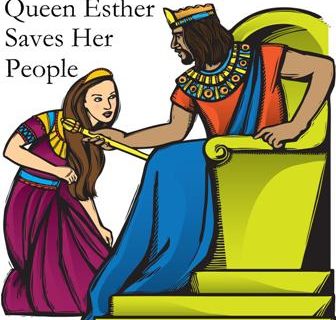In the Book of Esther, we read of two men – Haman an Agagite and Mordecai a Jew. Haman had been promoted by King Ahasuerus above all the princes that were with him. We can conclude that Haman was a very loyal subject of the king, and that he had performed some great deeds for the king. Mordecai also performed a great deed for the king when he alerted Queen Esther that Bigthan and Teresh had plotted to harm the king. Eventually, Mordecai was also honored by the king for his deed. (Note that Esther was Mordecai’s cousin; though he had raised her as his own daughter when she was orphaned during the overthrow of the Jews by king Nebuchadnezzar.) The notable difference between these two men is that Haman was very prideful, and he sought the “reverence” of Mordecai – though the converse was not true of Mordecai in the king’s recognition of him.
When Haman did not get the “reverence” from Mordecai, he sought not only the destruction of Mordecai, but also all of the Jews throughout all of the provinces where King Ahasuerus ruled. Up until this time Queen Esther had not revealed to king Ahasuerus that she was a Jew. Mordecai requested that Esther speak to the king on behalf of her people, the Jews. Esther responded, “All the king’s servants, and the people of the king’s provinces, do know, that whosoever, whether man or woman, shall come unto the king into the inner court, who is not called, there is one law of his to put him to death, except such to whom the king shall hold out the golden sceptre, that he may live: but I have not been called to come in unto the king these thirty days.” [Esther 4:11]. Mordecai then responded, “Think not with thyself that thou shalt escape in the king’s house, more than all the Jews. For if thou altogether holdest thy peace at this time, then shall there enlargement and deliverance arise to the Jews from another place; but thou and thy father’s house shall be destroyed: and who knoweth whether thou art come to the kingdom for such a time as this?” [Esther 4:13-14]. Esther then called upon her people, the Jews, to fast and pray concerning what she needed to do.
Esther 4:16 records,
“Go, gather together all the Jews that are present in Shushan, and fast ye for me, and neither eat nor drink three days, night or day: I also and my maidens will fast likewise; and so will I go in unto the king, which is not according to the law: and if I perish, I perish.”
(Note that in our most desperate of times, the Lord’s wisdom and guidance must be sought after through prayer and fasting; for, therein you will find clarity of thought and guidance from the Lord – as Daniel did in Daniel 9:3,
“And I set my face unto the Lord God, to seek by prayer and supplications, with fasting, and sackcloth, and ashes:”.
In the end Mordecai was elevated as next unto King Ahasuerus. Likewise, Queen Esther found great favor before the king; being offered even half of the kingdom upon her request. Let it be noted here that neither sought their own reward or elevation; they only sought the good of their people. Haman on the other hand – through his pride – sought his own elevation. Consequently, he along with his ten sons were “elevated” to swing at the end of a rope at the gallows. Let us not forget God’s warning against being prideful, “Pride goeth before destruction and a haughty spirit before a fall. Better it is to be of a humble spirit with the lowly, than to divide the spoil with the proud”. [Proverbs 16:18-19].
Little did Esther know that God had placed her in a position “for such a time as this”; to save her people. Little do we ourselves know at times when the Lord directs us to certain places to be used by Him – to be a witness for Him – “for such a time as this.” Let us not forget the following words from Scripture.
1 Peter 3:15,
“But sanctify the Lord God in your hearts: and be ready always to give an answer to every man that asketh you a reason of the hope that is in you with meekness and fear:”
I encourage you to read the Book of Esther to see the depths [and the costs] of one who was given over to pride, of one who could be characterized as having a humble spirit, of one who was “come to the kingdom for such a time as this.”



